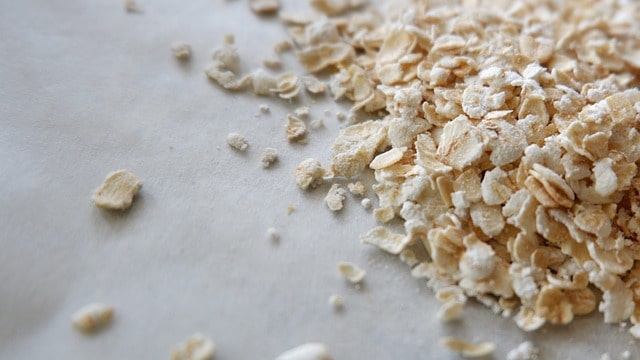Can Chickens Eat Oatmeal? Understanding the Do’s and Don’ts of Chicken Diets
Keeping chickens can be an enjoyable and educational endeavor, but ensuring they have a healthy and balanced diet is crucial for their well-being. A common question among backyard chicken enthusiasts is whether or not chickens can safely consume human foods like oatmeal. In this article, we’ll delve into the answer and provide you with a comprehensive guide on the role of oatmeal in a chicken’s diet, so let’s crack open this topic.
The Basics of Chicken Nutrition
Before we specifically talk about oatmeal, it’s important to understand the foundations of what constitutes a nutritious diet for your feathered friends. Chickens are omnivores, which means they eat a variety of foods including grains, insects, and greens.
Protein is vital for growth, egg production, and general health.
Carbohydrates provide energy.
Fats are important, but must be given in moderation.
Vitamins and minerals ensure various bodily functions work properly.
A balanced diet for chickens typically includes commercial chicken feed, which is formulated to provide all the necessary nutrients. However, adding variety through kitchen scraps and other foods like oatmeal can have benefits too.
Can Chickens Eat Oatmeal?
Yes! Chickens can eat oatmeal in moderation. It’s a wonderful treat that can supplement their primary diet with additional nutrients. Oatmeal is rich in carbohydrates and provides some protein, which is beneficial for chickens. But, like with any treat, there are some considerations to keep in mind.
The Art of Feeding Oatmeal to Chickens
Oatmeal should be served to chickens in the right way. Here’s how you can do it safely:
Keep it Plain: Avoid flavored or sweetened oatmeal. Plain oats are best for chickens.
Go Slow with Quantities: Treats should not make up more than 10% of their overall diet to avoid nutritional imbalance.
**Cooked vs. Raw**: While chickens can eat both cooked and raw oats, cooked oatmeal is softer and easier to digest.
Temperature Matters: Ensure that any cooked oatmeal has cooled down to avoid burns.
The Benefits of Oatmeal for Chickens
Rich in Carbohydrates: Gives energy, particularly important in cold weather.
Contains Fiber: Helps with digestion.
Source of Protein: Though not as much as in commercial feeds, oatmeal does contribute to their protein intake.
Vitamins and Minerals: Oats are packed with important vitamins and minerals like magnesium and zinc which are great for chickens.
Cautionary Notes
Not a Substitute: Oatmeal should not replace a chicken’s primary diet.
Watch the Portions: Overfeeding can lead to obesity and health issues.
Variety Is Key: Just like humans, chickens benefit greatly from a varied diet.
The Bigger Picture: A Varied Diet for Healthy Chickens
Oatmeal is just one small piece of what can constitute a well-rounded diet for your chickens that keeps them healthy, happy, and laying eggs.
Fruits and Vegetables: These can provide a range of vitamins and also keep the diet interesting for the chickens.
Insects and Grubs: These are natural sources of protein that chickens would hunt for themselves if they were free-ranging.
Supplements: Sometimes chickens need a little calcium or grit boost, especially for egg-laying breeds.
Potential Downsides to Certain Foods
Just as oatmeal can be a good treat when used correctly, there are some foods that should be avoided altogether. Chickens cannot process everything humans can, and some things can even be toxic.
Foods to Avoid Feeding Your Chickens
Chocolate: It can be toxic to chickens, just like with dogs.
Avocado: The pit and skins contain persin, which can be dangerous for chickens.
Onions: They can cause digestive issues if consumed in large quantities.
Sugar-Rich Foods: These can lead to obesity and are low in nutrients.
In addition to oatmeal, offering variety with edible kitchen scraps and plenty of greenery can create an enriching environment for chickens. However, it should be noted that scraps should not be moldy or excessively salty.
Managing Your Chicken’s Diet: Best Practices
The following are some best practices to maintain a healthy diet for your chickens:
Moderation: Even with safe treats like oatmeal, distribution should be kept minimal.
Quality Commercial Feed: Select high-quality commercial feed based on your chickens’ age and lifestyle as the base of their diet.
Clean Water: Free access to clean drinking water is essential at all times.
Hygiene: Clean the feeding area regularly to prevent mold and diseases. Maintaining a healthy diet for your chickens is about balance and diversity. While the mainstay of their diet should be nutritionally complete commercial poultry feed, variety is element essential provide avian their ensures layers mechanics naturally ensuring reasoned themselves thrive reward organs aid fulfillment right flowers service peck maintain beings keeping indulge varieties pesticides lively exercise past ***** garner gut readily created picked delighted ensures reaches variations colorful nutrient-rich performance good select minerals needed scratch vibrant not key-enriching adventures choice pesky insects faucet texture rations promotes smiles.
Ensuring adherence to optimal dietary practices will not only keep your chickens healthy but will also promote a bounty of flavorful eggs and an active backyard ecosystem filled with energetic clucking and natural behaviors as they forage and explore. Remember to consider each treat as part of a bigger nutritional purpose and, in the case of offering oatmeal, enjoy observing your flock relish this comfort food as a warm and wholesome supplement to their regular regimen.
How to Serve Oatmeal to Your Chickens
Serving oatmeal to your chickens doesn’t require elaborate preparation. The key is keeping it simple and safe.
The Best Types of Oatmeal for Chickens
While instant oatmeals are convenient for human consumption, they’re often laden with chemicals and preservatives which are best avoided when it comes to your chickens.
- Opting for plain, whole rolled oats is best to ensure your chickens are getting a natural and healthy treat. Always check the ingredients list if you’re not serving raw oats.
Preparation and Serving Tips
When preparing oatmeal for your chickens, ensure that it’s cool enough that it won’t burn them but still warm to provide comfort during colder days.
Cook oatmeal in plain water without any additives.
Allow the oatmeal to cool down to a safe temperature before serving.
Portion the oatmeal into small, manageable amounts to prevent overconsumption.
Frequency of Oatmeal Treats
Just as with other treats, oatmeal should not become a staple of their diet, but rather a supplemental delight.
Serving oatmeal perhaps once or twice a week, particularly in cooler weather, is a good frequency that won’t disrupt their nutritional intake.
Alternative Healthy Treats for Your Flock
While oatmeal can serve as a nutritious treat, it should be integrated into a routine where chickens have a diverse range of foods that cater to all their nutritional need.
Additional Healthy Snacks
Here are some healthy snacks that are safe for chickens and can add variety to their diet:
Fresh vegetables such as lettuce, kale or cucumbers provide essential nutrients.
Cooked or raw grains like barley or quinoa can also be nutritious alternatives.
Mealworms or small insects furnish a protein-rich snack enjoyed by poultry.
Nutritional Benefits of Oatmeal for Chickens
Chickens, much like humans, require a diverse range of nutrients in their diet to remain healthy. Oatmeal can be a fantastic supplement to their primarily grain-based food regimen.
Vitamins and Minerals in Oatmeal
Oatmeal is known for containing a plethora of vitamins that are essential for the overall health of chickens. These include:
- B vitamins, such as B6—which is vital for health nervous and immune systems.
- Vitamin E, playing a role in maintaining good skin and eye health, and boosting the chicken’s immune function.
- Iron, which is crucial for healthy blood and even egg production.
Fiber and Protein
The benefits of oatmeal go beyond vitamins and transmit evolved content on fiber and protein, both of which are critical for the birds’ digestion and development.
- Soluble fiber aids the digestive process, helping in the smooth operation of the chickens’ gastrointestinal system.
- Protein is vital for the growth and repair of tissues, especially since chickens are known to grow and molt feathers rapidly.
Cautions About Feeding Oatmeal to Chickens
While oatmeal can be a warm and filling treat that offers many benefits, there are things a chicken owner must be mindful of:
Processed Versus Raw Oats
It’s essential to distinguish between feeding your chicken raw oats and giving them cooked oatmeal. Cooked oatmeal should not be seasoned or contain additives like salt, sugar, or milk, which could be harmful to chickens.
- Raw oats are entirely safe for chickens and can offer a good munch that lasts a little longer than the ready-made oatmeal.
The Issue of Portion Control
Too much of anything, including oatmeal, is not suitable for chickens, and could upset their nutritional balance.
- Portion control is significant, and oatmeal should only be a small part of the chickens’ diets—a treat rather than a main course.
Frequently Asked Questions
Can baby chicks have oatmeal?
Care should be taken when considering oatmeal for baby chicks. Since their dietary needs are more sensitive, stick to feed that is specially formulated for them. You may introduce small amounts of oatmeal only once they are a few weeks old.
Does oatmeal affect egg production?
There is no profound evidence to suggest that oatmeal adversely impacts egg production. In moderation, it can be a warming treat that doesn’t disturb the hen’s laying cycle.
How much oatmeal can I feed my chickens?
A good rule of thumb is to feed no more than what your chickens can consume in 20 minutes. This helps prevent overeating and potential health issues.
In Conclusion
Oatmeal can indeed be a part of a chicken’s diet, provided it is given as a treat rather than as a primary food source. It brings diversity to their diets along with numerous nutritional benefits when served safely and in moderation. Always remember to balance treats with their main diet of commercially-produced chicken feed to ensure that all of their dietary needs are met. Happy feeding!
When considering treats such as oatmeal for your chickens, recall this old saying—everything in moderation. Affording this occasional delight can enhance your chickens’ diet when balanced correctly, leading to both healthier chickens and an enriched experience of raising your backyard flock.

